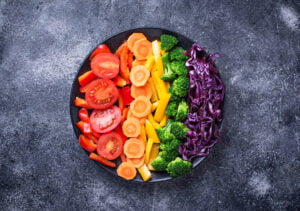How much sugar should a child have a day?

Sugars are a source of quick-release energy that can be found in many of the foods we eat. Natural sugars are in foods like fruits, vegetables, and milk. Along natural sugars, refined sugars are also added to a wide range of processed foods and drinks. Refined sugars are very concentrated sources of energy and consuming too much of them can contribute to health problems such as tooth decay, obesity, and an increased risk of diabetes and heart disease. So, it's important to be mindful of the amount of sugar we all consume on a daily basis. In this article we'll review how sugar affects the body, the advice about how much sugar we should have in childhood and give you some easy steps you can use to reduce the amount of sugar in your families diet.
How much sugar is too much?

Added or refined sugar is any sugar that is added to foods or drinks during processing or preparation, as opposed to naturally occurring sugar found in whole foods like fruit. Examples of added sugars include white sugar, brown sugar, corn syrup, honey, and agave nectar. These types of sugars are often found in high amounts in sugary drinks, candy, baked goods, and other sweets.
Guidance from the American Heart Association (AHA) and World Health Organization (WHO) advises that children and teenagers should limit the amount of refined sugar in their diet to around 25 grams (6 teaspoons) per day.
What about natural sugars in fruits and vegetables?

Most health experts agree that we do not need to limit our sugar intake from fruits and vegetables. While fruits and vegetables do contain natural sugars, they are also packed with important vitamins, minerals, and fiber that are essential for good health. In fact, the World Health Organisation and the American Heart Association both recommend consuming a diet rich in fruits and vegetables as part of a healthy eating pattern.
How much sugar do fruits and vegetables have?
It's worth noting that some fruits and vegetables do contain more sugar than others. For example, fruits such as grapes, mangos, and bananas are relatively high in natural sugars, while vegetables like carrots and beets also contain a fair amount of natural sugars. However, these foods also provide important vitamins, minerals and fibre and can be part of a healthy diet when consumed in moderation.
In general, the key to a healthy diet is to focus on whole, unprocessed foods and to consume a variety of fruits and vegetables in a range of colours to ensure you are getting a wide range of nutrients.
What happens when we eat too much sugar?

When we consume sugary foods and drinks, our bodies rapidly absorb the glucose (sugar) into our bloodstream. In response, a gland behind the stomach called the pancreas releases the hormone insulin.
Insulin helps move the glucose out of the blood and into our cells, where it can be used for energy. However, when we eat too much sugar in one go, our bodies can't keep up with the demand for insulin. The blood sugar level rises causing damage to blood vessels and nerves.
Excess sugar that cannot be used by cells at the time is ultimately stored as fat. This can lead to weight gain, which can increase the risk of health problems such as heart disease and diabetes.
Rapid rises and falls in blood sugar levels can also cause changes in our mood and behaviour, making it hard for children to concentrate and learn.
How can we reduce the amount of sugar in our diet?

Sugar is added to a lot of the foods we eat, it's hidden in a lot of . It can make reducing the sugar in our diet a challenge. Here are a few tips you can follow to help reduce your child's added sugar intake:
Choose whole, unprocessed foods.
Fruits, vegetables, whole grains, and proteins are all excellent sources of nutrients and are generally low in added sugars. Encourage your child to eat a variety of these foods to help meet their nutritional needs.
Read food labels.
Look for foods that have a low sugar content, and be aware of the different types of sugars that can be added to foods, such as corn syrup, molasses, and honey. Foods that are high in sugar may be labeled as "sweet," "rich," or "luxurious." It’s worth bearing in mind that many foods labelled as “low fat” have added processed sugar in order to improve taste.
Limit sugary drinks.
Fizzy drinks, sports drinks, and fruit juices and squashes are all high in added sugars and can contribute significantly to your child's daily sugar intake. Encourage your child to drink water, milk, and unsweetened drinks instead. Along with processed sugar these drinks are often acidic, which can be a particular problem for tooth decay in children.
Avoid sugar as a reward or distraction.
It can be tempting as a parent to use sweet treats as a tool to encourage good behaviour. However this can set up an expectation that a certain behaviour will always lead to a sugary treats, and also reinforces that sweets and chocolates are the 'nice' foods when compared to fruits or other snacks. Instead it's best to make sugary treats as a small part of some meals to be eaten in moderation.
Take Homes.
While sugar is an important source of energy, it's important to be mindful of the amount your child is consuming. By following these tips, you can help your child maintain a healthy weight and reduce their risk of developing health problems related to excess sugar consumption. It’s not always possible to avoid sweet treats, and in moderation they won’t harm your baby. But it is worth being mindful of what your little people eat on a regular or daily basis and trying to keep refined sugars to a minimum.
Did you know that the Poppet community is a great place to find more helpful tips and resources for your family as well as flexible childcare from local parents and approved providers, all at the touch of a button. Register here today!
Disclaimer: Please remember this article is for education purposes and does not constitute medical advice. You should seek advice from a trained medical professional if you have concerns about your child’s health.

